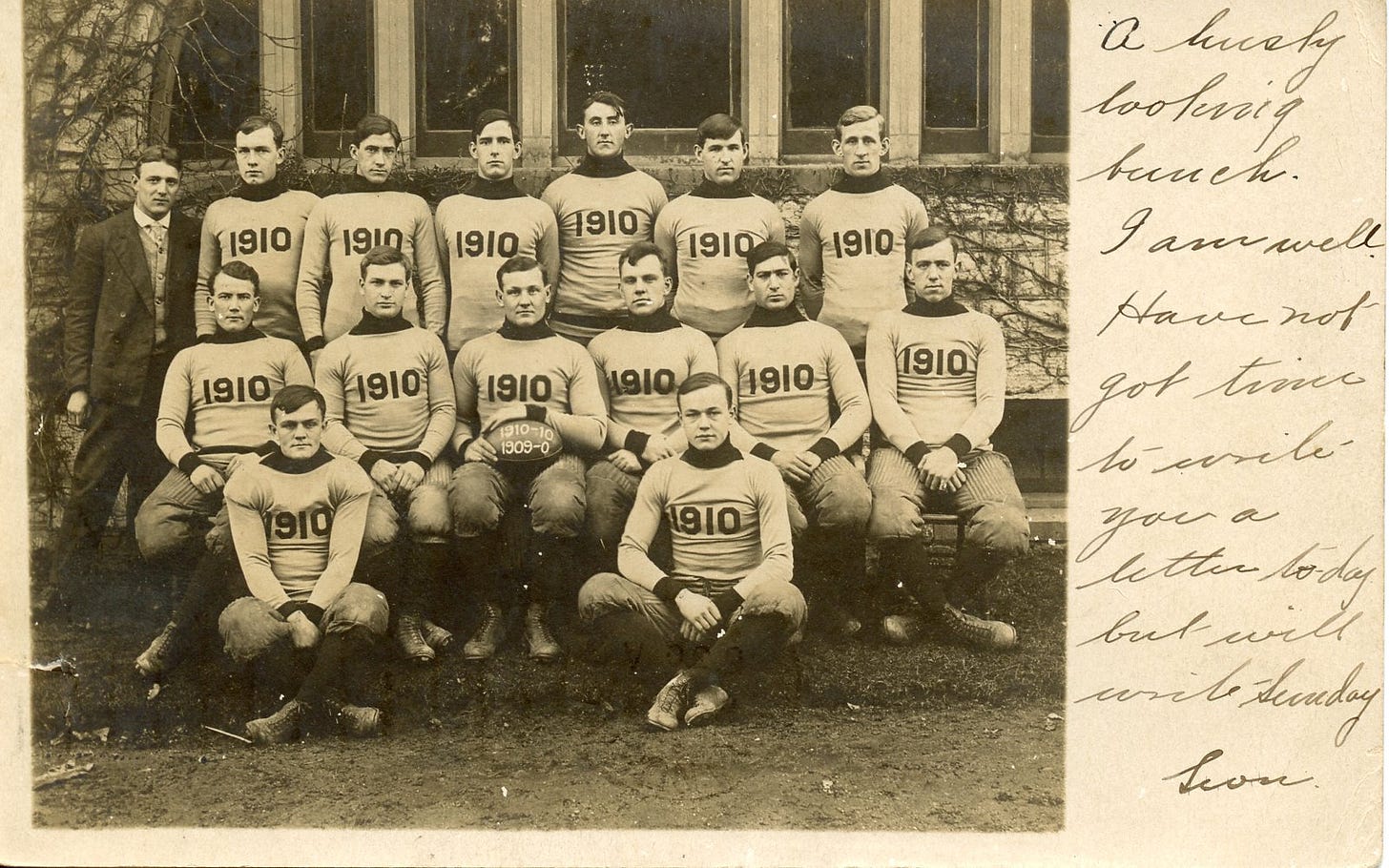Terminology... Basic Fundamentals
This is article #17 in a series covering the origins of football’s terminology. All are available under the Terminology tab above. My book, Hut! Hut! Hike! describes the emergence of more than 400 football terms.
Before colleges had intramural programs, they often had class football teams with rosters filled by class members who were not varsity players. Class teams typically played one another, with some playing outside competition. The latter was the case when the University of Washington’s junior class scheduled a game with the Tacoma Athletic Club in 1915. The Washington boys must have been serious about their team since the Tacoma Times indicated that:

The juniors are being coached by “Conny” MacLean, former crack end of the University of Minnesota and Yale university (sic) elevens, and though with only two weeks practice behind them, the juniors have been well educated in all the intricacies and basic fundamentals of the famous Minnesota shift and the Yale forward pass.
That appears to have been the first time someone used the expression publicly concerning football. Still, it was already in circulation in fields ranging from religion to engineering, and baseball and basketball coaches of the 1910s and 1920s talked of basic fundamentals well.
Under normal circumstances, that would be more than enough said about this topic since we have better things to do with our time than to discuss the most inane of expressions. However, two short years later, none other than Walter Camp said:
There is a sequence in development of attack that must be followed, first the basic and fundamental line attack, and then the fancy plays and frills. If the team has not the former, the latter will prove only a flash in the pan.
While Walter did not say “basic fundamentals,” he did say “basic and fundamental,” which is equally offensive. And to think the Father of Football nearly fathered the most foolish of football expressions.
Football Archaeology is reader-supported. Click here to buy one of my books or otherwise support the site.

